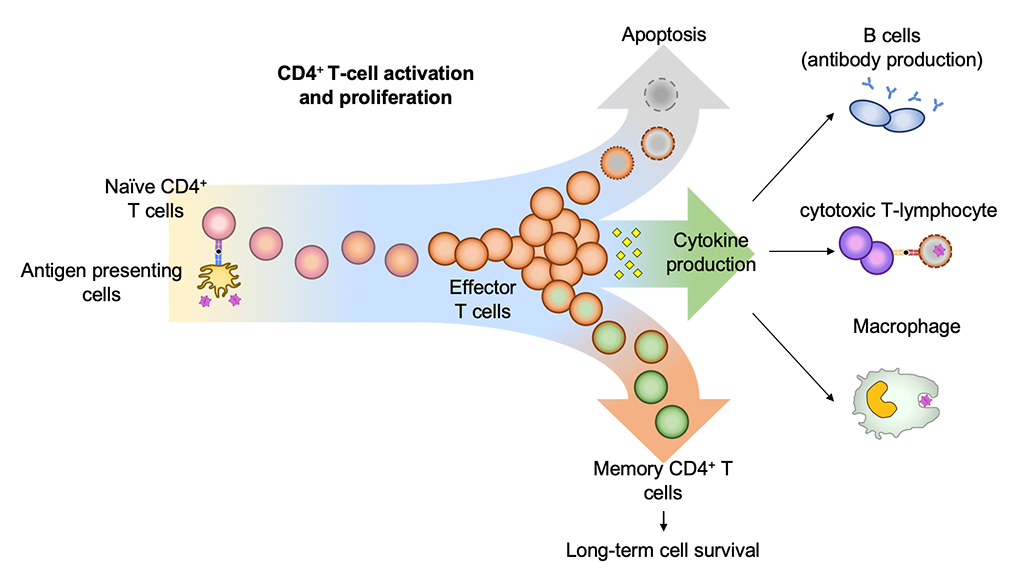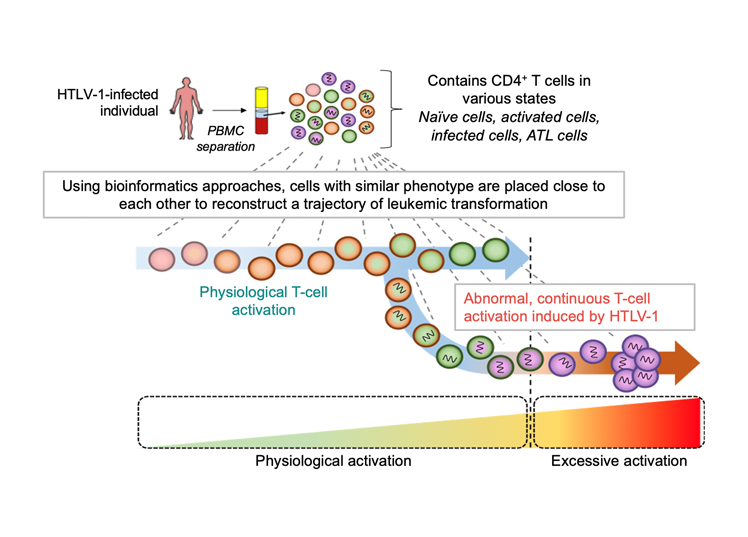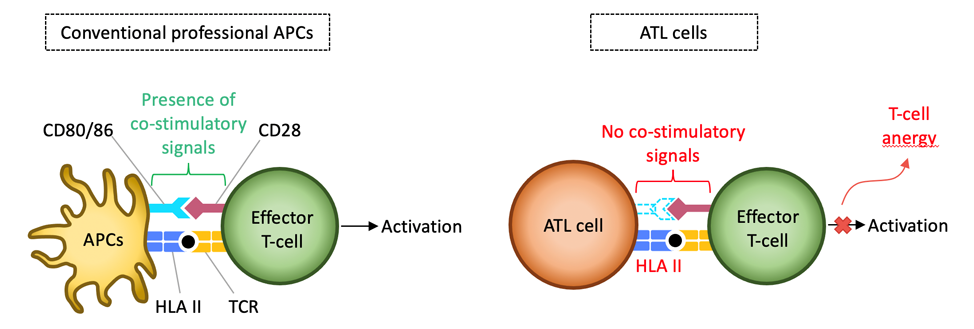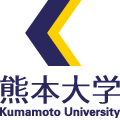HTLV-1 infection promotes T-cell activation and malignant transformation into adult T-cell leukemia/lymphoma
MAIN POINTS
-
- Human T-cell leukemia virus type 1 (HTLV-1) infects human CD4+T cells and causes adult T-cell leukemia/lymphoma (ATL).Using single-cell RNA-seq (scRNA-seq), we showed that HTLV-1-mediated leukemic transformation is a seamless transition from physiological T-cell activation where infected cells in an activated state further transforms into ATL cells, retaining its activated phenotype
- HTLV-1-infected CD4+T cells upregulate HLA class II molecules; but due to the lack of necessary co-stimulatory molecules used for T-cell activation, these cells instead caused T-cell anergy which allows the infected cells to escape immune surveillance
- Our findings further enhance our understanding on HTLV-1-mediated leukemogenesis and immune evasion which allows us to identify new molecules such as HLA class II as potential targets for immunotherapy
A joint research group led by Prof. Yorifumi Satou at the Joint Research Center for Human Retrovirus Infection, Kumamoto University has completed a single-cell study on HTLV-1 which shed light on how HTLV-1-infected CD4+T cells escape immune surveillance and transform into ATL cells. This research was conducted in collaboration with Dr. Masahiro Ono from Imperial College London. The results were published in the Journal of Clinical Investigation on xxx, 2021.
SUMMARY
In the human body, CD4+ T cells play an important role in regulating the immune response against pathogens and cancers. Upon recognizing foreign/cancer antigen, these cells become activated and carries out its effector functions together with other immune cells in the body to clear the invading pathogens. This is termed ‘physiological T-cell activation/differentiation’.

To overcome this barrier, human T-cell leukemia virus type 1 (HTLV-1) infects the CD4+T-cells themselves and causes a specific type of leukemia termed adult T-cell leukemia/lymphoma (ATL). In Japan, there are at least 1.1 million HTLV-1-infected individuals and approximately 1,500 patients are newly diagnosed with ATL every year. Several studies have reported that HTLV-1 can alter CD4+ T-cell differentiation, activation and survival pathways to trigger transformation into ATL. This process is termed ‘HTLV-1-mediated leukemic transformation’. However, the link between physiological T-cell activation and HTLV-1-mediated activation/transformation is still unclear.
In this study, we applied single-cell RNA-seq (scRNA-seq) to examine immune cells from HTLV-1-infected and healthy individuals at a single cell level. We showed that HTLV-1-mediated leukemic transformation is an extension of the physiological T-cell activation pathway wherein HTLV-1-infected cells in an activated state retain its phenotype and further transformed into ATL cells.

Additionally, HTLV-1-infected CD4+ T cells also upregulate HLA class II molecules. HLA class II, together with the co-stimulatory molecules CD80/CD86, are important surface proteins for T-cell activation. However, HTLV-1-infected CD4+ T cells do not express CD80/CD86 and as such, these cells could not activate T cells but rather induced T-cell anergy or inactivation. This leads to a suppressed immune response which allows the virus and infected cells to escape immune surveillance.

In conclusion, using scRNA-seq, we showed that HTLV-1 exploits the physiological T-cell activation mechanisms for leukemic transformation and demonstrated that by upregulating HLA class II, HTLV-1-infected CD4+T cells are able to escape immune surveillance in the human body. This exemplifies the huge potential of single-cell methods to further improve our understanding on HTLV-1-mediated leukemogenesis and identification of new, potential molecules for immunotherapy.

This work was supported by research grants from the Japan Society for the Promotion of Science (JSPS) KAKENHI (20H03724, 18KK0230, 19H05426, 21K07082, 21H00433, 16KK0206, 18K16122, 18K08437, 18KK0452, 20K22783, 21K08494 and 21K15454); Japan Agency for Medical Research and Development (AMED) (JP20jm0210074, JP20wm0325015, JP19fm0208012 and JP20fk0410023); the Grant for Joint Research Project of the Institute of Medical Science, the University of Tokyo; the grant from Kumamoto University Excellent Research Projects; JST MIRAI (18077147); the program of the Joint Usage/Research Center for Developmental Medicine, Inter-University Research Network for Trans-Omics Medicine, Institute of Molecular Embryology and Genetics, Kumamoto University and the Medical Research Council (MRC) (MR/S000208/1).
ARTICLE INFORMATION
- Title:
- HTLV-1 infection promotes T-cell activation and malignant transformation into adult T-cell leukemia/lymphoma
- Authors::
- Benjy Jek Yang Tan, Kenji Sugata, Omnia Reda, Misaki Matsuo, Kyosuke Uchiyama, Paola Miyazato, Vincent Hahaut, Makoto Yamagishi, Kaoru Uchimaru, Yutaka Suzuki, Takamasa Ueno, Hitoshi Suzushima, Hiroo Katsuya, Masahito Tokunaga, Yoshikazu Uchiyama, Hideaki Nakamura, Eisaburo Sueoka, Atae Utsunomiya, Masahiro Ono and Yorifumi Satou
- Journal:
- Journal of Clinical Investigation
